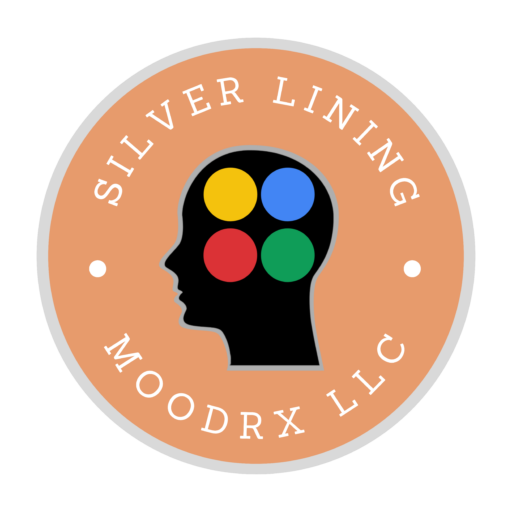Introduction
Dementia is one of the most challenging conditions affecting seniors, impacting memory, reasoning, and daily functioning. It is not a single disease but a syndrome caused by various brain disorders, with Alzheimer’s disease being the most common form. While dementia is often associated with aging, it is not a normal part of growing old.
For seniors and their families, a dementia diagnosis can be overwhelming. However, early detection, proper management, and support can improve quality of life for both individuals and caregivers. Understanding the stages, symptoms, and coping strategies is essential for navigating the journey ahead.
What is Dementia?
Dementia refers to progressive cognitive decline that interferes with daily life. It affects:
- Memory and recall – Forgetting names, places, and recent events.
- Problem-solving skills – Difficulty managing finances, planning meals, or following a conversation.
- Language and communication – Struggling to find words or follow instructions.
- Behavior and mood – Increased anxiety, depression, or agitation.
While forgetfulness can be a normal part of aging, dementia-related memory loss is persistent and progressively worsens over time.
The Story of Alice: A Journey Through Dementia
Alice, an 82-year-old retired librarian, was known for her sharp memory and love of books. When she started forgetting familiar storylines and misplacing items, her family brushed it off as “senior moments.”
However, when she struggled to recognize her grandson and got lost walking in her own neighborhood, her daughter grew concerned. After medical evaluation, Alice was diagnosed with early-stage Alzheimer’s disease.
At first, the news was devastating, but with the right care plan, family support, and therapy, Alice was able to maintain her independence longer than expected. She engaged in brain exercises, used memory aids, and joined a support group, which gave her a sense of purpose and social connection.
Her story highlights that while dementia is life-changing, it does not mean life is over. With the right approach, seniors can still find joy, dignity, and connection.
Early Signs and Symptoms of Dementia
Recognizing early signs of dementia can help seniors seek medical intervention and support sooner. Common symptoms include:
- Short-term memory loss – Forgetting conversations, appointments, or recent events.
- Difficulty with routine tasks – Struggling to cook, drive, or manage medications.
- Confusion with time or place – Getting lost in familiar areas.
- Language problems – Trouble finding words, repeating phrases, or losing train of thought.
- Mood swings and personality changes – Increased irritability, anxiety, or withdrawal from social activities.
- Poor judgment and decision-making – Falling for scams or making unusual purchases.
Common Types of Dementia
1. Alzheimer’s Disease
- Most common form of dementia (60-80% of cases).
- Caused by plaques and tangles in the brain that disrupt memory and thinking.
- Progresses slowly over time, from mild forgetfulness to severe cognitive impairment.
2. Vascular Dementia
- Often caused by strokes or reduced blood flow to the brain.
- Symptoms include poor judgment, difficulty concentrating, and slower thinking.
3. Lewy Body Dementia
- Characterized by visual hallucinations, sleep disturbances, and movement issues.
- Can cause fluctuations in alertness (some days are better than others).
4. Frontotemporal Dementia (FTD)
- Affects personality, behavior, and speech rather than memory in early stages.
- Leads to social withdrawal and inappropriate behavior.
5. Mixed Dementia
- A combination of two or more types of dementia (e.g., Alzheimer’s + Vascular Dementia).
How Seniors Can Manage Dementia Symptoms
While there is no cure for dementia, certain strategies can slow progression and improve daily life.
1. Lifestyle Changes to Support Brain Health
- Stay physically active – Walking, yoga, and gentle exercise improve blood flow to the brain.
- Eat a brain-healthy diet – The Mediterranean diet (rich in vegetables, healthy fats, and lean proteins) is linked to better cognitive function.
- Keep the mind engaged – Reading, puzzles, and learning new skills can strengthen neural connections.
2. Using Memory Aids and Organizational Tools
- Calendars and reminders – Writing down appointments and daily tasks.
- Labeling items – Placing labels on drawers, cabinets, and frequently used objects.
- Voice-assisted devices – Smart technology can help set medication reminders and provide assistance.
3. Maintaining Social Connections
- Joining dementia-friendly support groups provides emotional support and mental stimulation.
- Spending time with loved ones can reduce feelings of isolation and depression.
- Engaging in creative activities like music therapy, art classes, and gardening can enhance well-being.
4. Seeking Medical Treatment and Therapy
- Medications like Donepezil (Aricept) and Memantine (Namenda) can help slow symptom progression.
- Cognitive-behavioral therapy (CBT) can assist seniors in coping with frustration and confusion.
- Speech therapy can help those struggling with communication difficulties.
How Caregivers Can Support Seniors with Dementia
Caregivers play a vital role in helping seniors navigate dementia with dignity. However, caregiving can be demanding. Here are some ways to make the journey smoother:
1. Establishing a Daily Routine
- Consistency reduces confusion and anxiety.
- Keeping mealtimes, activities, and bedtime the same each day creates a sense of stability.
2. Communicating with Patience and Understanding
- Use short, simple sentences and repeat information when needed.
- Avoid correcting seniors when they misremember things—instead, gently redirect.
- Provide reassurance and encouragement to reduce frustration.
3. Seeking Outside Help When Needed
- Adult day programs offer socialization and activities in a safe environment.
- Home health aides can provide respite care for family caregivers.
- Support groups for caregivers help prevent burnout and provide emotional support.
Finding Hope and Connection
A dementia diagnosis does not mean the end of a meaningful life. With early intervention, lifestyle adjustments, and support, seniors with dementia can continue to engage with loved ones and enjoy fulfilling experiences.
Key Takeaways:
✔ Dementia is a progressive condition, but early detection helps manage symptoms effectively.
✔ Maintaining brain health, staying socially active, and using memory aids can improve daily life.
✔ Caregivers should seek support to prevent burnout and provide compassionate care.
If you or a loved one are experiencing memory loss or cognitive changes, seek medical evaluation and support as soon as possible. There is always hope—and help is available.
Keywords:
dementia support, aging and memory loss, Alzheimer’s disease, cognitive decline in seniors, brain health strategies
Hashtags:
#DementiaAwareness #AlzheimersSupport #HealthyAging #SeniorMentalHealth #BrainHealth
References:
- Alzheimer’s Association. (2023). Understanding Alzheimer’s and Dementia.
- National Institute on Aging. (2023). Cognitive Decline and Brain Health in Older Adults.
- Mayo Clinic. (2023). “Treatment Options for Dementia.”
- Harvard Medical School. (2022). “The Role of Lifestyle in Reducing Dementia Risk.”
- American Psychological Association. (2023). “Dementia and Mental Health: Coping Strategies for Seniors.”

















